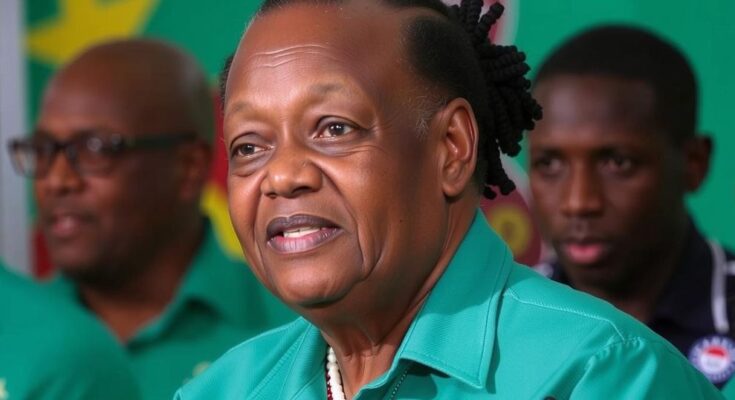Mozambique’s post-election crisis intensifies as President-elect Daniel Chapo, confirmed by the Constitutional Council, confronts significant unrest following allegations of electoral fraud. Opposition leader Venancio Mondlane’s supporters are mobilizing protests, complicating Chapo’s calls for reconciliation and risking divisions within the ruling Frelimo party.
Mozambique’s President-elect Daniel Chapo faces significant challenges as he attempts to resolve the ongoing post-election crisis in the country. The recent confirmation by Mozambique’s Constitutional Council that Chapo, the candidate from the ruling Frelimo party, won the contested presidential election held on October 9 has led to intensified unrest. Despite signals of potential dialogue efforts from Chapo, tensions remain high as supporters of the opposition leader Venancio Mondlane have responded vigorously, protesting against what they deem to be fraudulent election results.
In the wake of the October 9 general elections, Mozambique has experienced rising tensions and unrest. President-elect Daniel Chapo has been elected amidst allegations of electoral fraud, a sentiment echoed by many Western observers. As the leader of the ruling Frelimo party, Chapo must navigate these tumultuous circumstances to foster national reconciliation while contending with the position of opposition leaders like Venancio Mondlane, who have rallied significant public support against the election results.
In summary, President-elect Daniel Chapo’s upcoming tenure is fraught with challenges, particularly in addressing the ongoing unrest stemming from the disputed elections. The potential for dialogue and reconciliation exists, yet the risks of internal conflict within the Frelimo party loom large. As demonstrations continue, the political landscape in Mozambique remains precarious, requiring delicate negotiation to stabilize the nation and its economy.
Original Source: worldview.stratfor.com




